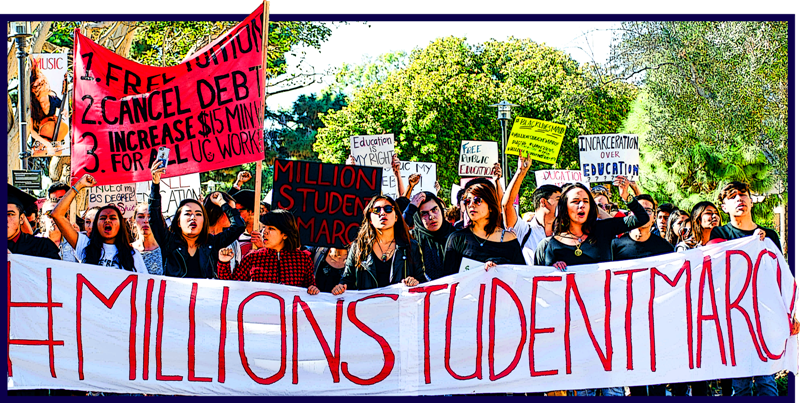
Julia Mead
Why Millennials Aren’t Afraid of Socialism
[Originally Published in The Nation]
On Wednesday, November 9, at 9:47 am, BuzzFeed News sent out a push notification: “Trump is leading a global nationalist wave. The liberal world order is nearly over and the age of populism is here.” This, from a publication better known for listicles than sweeping political pronouncements. If even BuzzFeed felt it necessary to ring the death knell for the “liberal world order,” then liberalism must be really, really dead.
But what, besides global nationalism, can replace it? The answer is clear if we look at the 2016 election from its inception. The race we should be remembering is not just Clinton versus Trump, but Sanders versus Clinton. For nearly a year, millions of Americans supported an avowed socialist, and many of those people were young—like me.
This new New Left renaissance isn’t confined to the United States: Our British neighbors witnessed a similar wave of enthusiasm for Jeremy Corbyn. It’s kind of funny, if you think about it: The two most prominent politicians to galvanize young people in the United States and the United Kingdom over the last year are old white dudes. Sanders and Corbyn both look like my dad, except even older and less cool.
And it’s not just them—their ideas are old too. Or so it would seem to anyone who came of age before the fall of the Berlin Wall. Socialism, the redistribution of wealth, providing vital benefits and social services through the mechanism of the state—people were talking about this in the 1960s. And in the 1930s. And in the 19-teens. And now Sanders and Corbyn are recycling those hoary ideas (or so the argument goes), their only concession to the 21st century being the incorporation of racial-, queer-, and climate-justice rhetoric. (We can argue about how earnest they are and how successful that’s been).
Yascha Mounk
HOW POPULIST UPRISINGS COULD BRING DOWN LIBERAL DEMOCRACY
[Originally Published in The Guardian]
THERE ARE LONG DECADES IN WHICH HISTORY SEEMS TO SLOW TO A CRAWL. Elections are won and lost, laws adopted and repealed, new stars born and legends carried to their graves. But for all the ordinary business of time passing, the lodestars of culture, society and politics remain the same.
Then there are those short years in which everything changes all at once. Political newcomers storm the stage. Voters clamour for policies that were unthinkable until yesterday. Social tensions that had long simmered under the surface erupt into terrifying explosions. A system of government that had seemed immutable looks as though it might come apart.
This is the kind of moment in which we now find ourselves.
Until recently, liberal democracy reigned triumphant. For all its shortcomings, most citizens seemed deeply committed to their form of government. The economy was growing. Radical parties were insignificant. Political scientists thought that democracy in places like France or the United States had long ago been set in stone, and would change little in the years to come. Politically speaking, it seemed, the future would not be much different from the past.
Then the future came – and turned out to be very different indeed. Citizens have long been disillusioned with politics; now, they have grown restless, angry, even disdainful. Party systems have long seemed frozen; now, authoritarian populists are on the rise around the world, from America to Europe, and from Asia to Australia. Voters have long disliked particular parties, politicians or governments; now, many of them have become fed up with liberal democracy itself.
OTHER PIECES BY YASCHA MOUNK:
"The Signs of Deconsolidation" (Journal of Democracy, January 2017)
"Yes, people really are turning away from democracy" (Washington Post, December 8, 2016)

 The Andrea Mitchell Center for the Study of Democracy
The Andrea Mitchell Center for the Study of Democracy